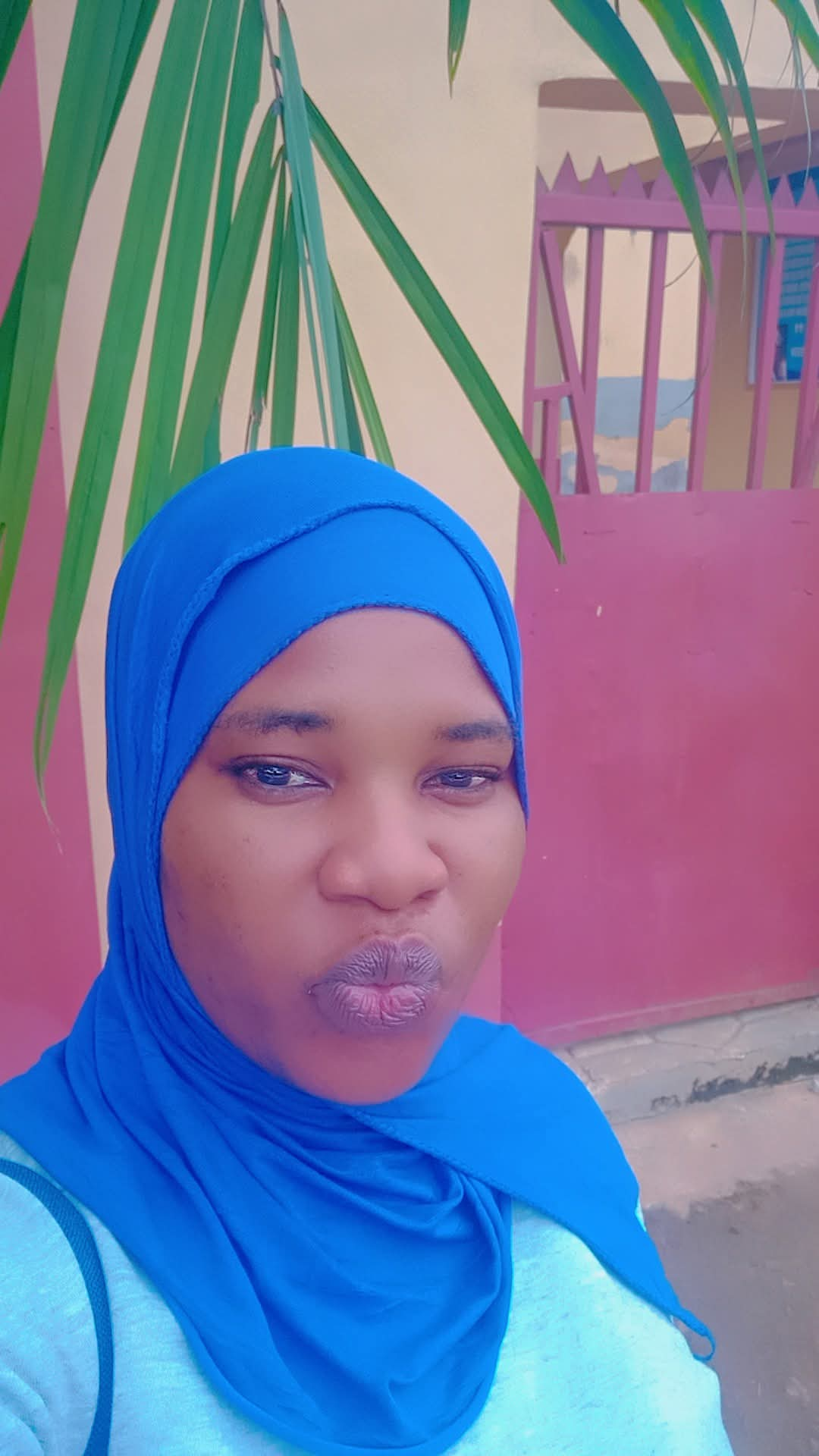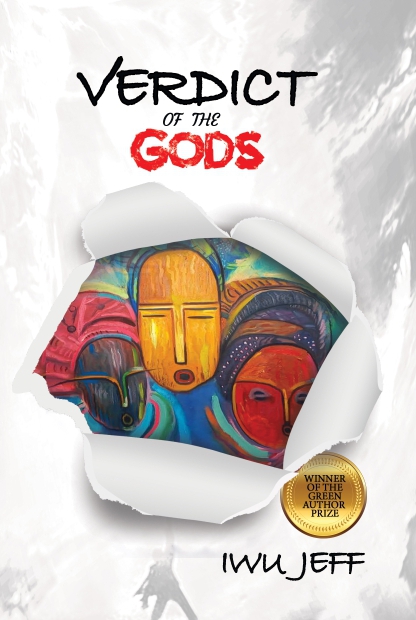Masobe Books as Othuke Ominiabohs’ resolve after near-death experience

* ‘We’re in constant motion, learning, pivoting, creating a roadmap for what publishing in 21st-century Africa can be’
By Godwin Okondo
IN faraway Algiers, Algeria, early September, Masobe Books was shortlisted as four of the publishers with best two books in Africa. This was at the CANEX Prize for Publishing in Africa 2025. Masobe had two books in the contest worth USD$20,000 – No Pink in a Rainbow by Angel Patricks Amegbe and Broken: Not a Halal Love Story by Fatima Bala. In the 2-year short history of CANEX Prize, Masobe Books was first to have two titles contesting for the prize. Although it lost the contest to South Africa’s Karavan Press whose book In Silence My Heart Speaks by Thobeka Yose won the prize’s second edition, Masobe Books returned from Algiers bristling with an abundance of hope, as another of its two books – The Road to the Country by Chigozie Obioma and Sanya by Oyin of The Nigeria Prize for Literature 2025 prose fiction category, sponsored by gas company, NLNG.
Masobe Books earlier made history as the first publishing concern to have as much as five books vying in the longlist in the prize’s 20-year history. Olugbile’s Sanya would later clinch the coveted USD$100,000 prize on October 10, 2025 to wrap up a remarkable year for Masobe Books. ‘Masobe’ is Ominiabohs’ Isoko word for ‘let us read’, and indeed the young publisher has been making priceless fiction books available for Nigerians to read more than ever before judging by the sheer number of books he publishes every year since setting up. This hunger to conquer the publishing landscape was fueled by a near-death experience Ominiabohs had a little over 10 years ago.
In the quietness of a hospital room in 2014, Othuke Ominiabohs faced a truth most people spend their lives avoiding: the fragility of existence. Diagnosed with end-stage Chronic Kidney Disease, a condition that left both his kidneys failing and his future uncertain, he found himself tethered to a hospital bed, staring down the possibility of an early death.
Just in his 20 at the times, the weight of mortality pressed heavily on him, forcing a reckoning with what it meant to live a life of purpose. “Life is beautiful and sweet, but it’s also painfully finite,” he reflects. It was in that sterile, uncertain space that Ominiabohs made a vow. If he survived, he would dedicate his life to stories—crafting them, curating them, and ensuring they left an indelible mark on the world. He decided these stories would be his legacy, a way to make his fleeting presence count for something eternal.
That moment that he stood face-to-face with his own mortality reshaped Ominiabohs’s philosophy on life and art. Lying in that hospital bed, he questioned everything—his purpose, his impact, his place in the world. “There had to be more than just being born, living briefly, dying, and fading into insignificance,” he recalls. The words “purpose” and “legacy” took on a new weight, becoming not just abstract ideals but urgent imperatives.
Stories, he realized, were his gift, his way of contributing to a world that had given him the precious, precarious gift of life. This epiphany didn’t just fuel his writing; it birthed Masobe Books, a Nigerian publishing house that has become a beacon for overlooked voices and a challenge to the long-held notion that “books don’t sell here” (in Nigeria, Africa). For Ominiabohs, stories are more than entertainment—they are a lifeline, a means of connecting humanity, preserving truths, and leaving something behind that outlasts the teller.

Othuke Ominiabohs
Ominiabohs wears two hats, each demanding and distinct: the solitary writer, pouring his soul into novels and short stories, and the entrepreneurial CEO of Masobe Books, navigating the complexities of a publishing industry in Nigeria’s challenging economic landscape. Balancing these roles is a delicate dance, one he admits he hasn’t entirely mastered. “My last novel was published in 2021,” he says with a hint of regret. “Since Masobe took off, writing has taken a backseat.”
His weekdays are consumed by the relentless demands of running a company, overseeing manuscripts, managing distribution, and tackling the logistical hurdles that come with publishing in Nigeria. Yet, he finds profound fulfillment in this shift, in the act of birthing other writers’ works.
“There’s immense joy in platforming others,” he says, his passion for publishing as fierce as his love for writing. Weekends, though, are his sanctuary. That’s when he retreats into the quiet solitude of his craft, chipping away at his fourth novel or piecing together a collection of short stories, each sentence a reclamation of his creative identity.
His novel, Aviara, is perhaps the most poignant reflection of his journey through illness. Written in the aftermath of his diagnosis, the book was both a cathartic release and a grueling ordeal, as he confesses, “Writing Aviara was more challenging than therapeutic.”
To tell the story authentically, he had to plunge back into the darkest moments of his life—the nausea, the itching, the suffocating fear of not knowing whether he would survive. The process was so visceral that at times, he convinced himself his new kidney was failing, prompting frantic hospital visits to confirm otherwise.
“I abandoned the project a few times,” he admits. What kept him going was a fierce determination to create something meaningful, a work that could serve as a beacon for others navigating similar storms. “I wanted Aviara to be a guide,” he explains, “a hopeful hand for patients and their families, a way to brighten the tunnel.” The result is a novel that pulses with emotional truth, a testament to resilience and the power of storytelling to transform pain into purpose.
When he’s not wrestling with words or steering Masobe Books, Ominiabohs finds solace in the simple rhythms of life. Family time with his children is his anchor, grounding him in love and laughter. He’s an avid movie buff, drawn to the high stakes of suspense, action, and drama—films that keep him on the edge of his seat, much like the thrillers that shaped his early reading.
Chess offers a quieter escape, its strategic dance a welcome challenge, while Afrobeats, with its infectious energy, provides a soundtrack to his downtime. But nothing restores him quite like returning to his hometown of Aviara in Isoko, Delta State. “It’s the one place that recenters me. It connects me to my roots, my family, my values. In Aviara, the world feels like a much, much better place.”
These visits are more than nostalgia; they’re a reminder of the cultural pride that infuses everything he does, from his writing to his publishing empire. Masobe Books, named for the Isoko phrase meaning “let us read,” is a love letter to his heritage and a bold declaration of intent. Founded to answer the cries of writers and readers alike, it seeks to make books accessible in a country where distribution, logistics, and cost often conspire against literacy.
Ominiabohs is candid about the challenges, particularly the scarcity of skilled professionals in an industry still in its infancy. “Staffing is the biggest non-creative hurdle,” he says, noting the limited pool of experienced editors, designers, and typesetters in Nigeria’s publishing landscape.
The “japa” culture—Nigeria’s brain drain—only exacerbates the issue, with trained professionals often leaving for opportunities abroad. Yet, he remains undeterred, investing in training and experimentation to build a sustainable ecosystem.
Masobe’s upcoming App, set to launch in 2026, is a testament to this forward-thinking approach, promising readers worldwide access to books for as little as N300. “We’re in constant motion,” he says, “learning, pivoting, creating a roadmap for what publishing in 21st-century Africa can be.” The proof of this vision lies in Masobe’s recent successes—two of its titles were finalists for The Nigeria Prize for Literature 2025, a milestone that, while hoped for, feels like a resounding affirmation of his mission.
As a publisher, Ominiabohs is drawn to manuscripts that resonate with emotional truth. “Why should I care about your story?” he asks, emphasizing the importance of a narrative that grabs readers and makes them feel something—anything—within the first few pages. Originality, depth, and brevity are also key, but it’s the emotional core that matters most. “Language can be fixed through editing,” he says, “but a story without heart is hard to salvage.”
His own writing reflects this priority, whether in the lyrical cadence of his prose or the raw honesty of his narratives. Poetry was his first love, a form he discovered in his youth and still carries in his work. “I don’t actively write poetry anymore,” he says wistfully, “but you can find it in my prose.” Prose, for now, is his medium, offering the space to explore the questions that poetry once answered, questions about life, loss, and the human condition.
His influences are as eclectic as his roles. As a young reader, he devoured thrillers by Robert Ludlum, Sydney Sheldon, James Hadley Chase, Stephen King, and John Grisham, with Ludlum’s intricate plotting leaving a lasting mark. In recent years, the lyrical depth of J.M. Coetzee, Ben Okri, and Gabriel Garcia Marquez has shaped his craft, pushing him to explore new dimensions of storytelling.
His current obsession is a forthcoming Masobe title, A Dying Giant in the Palm of Your Hand by Adelehin Ijasan, set for release in January 2026. “The historical sweep, the emotional resonance, the craft—it’s one of the best books I’ve read,” he says, his enthusiasm infectious. For Ominiabohs, championing new voices is as vital as telling his own stories, a reflection of his belief that publishing is about building a community, not just a catalogue.
Looking ahead, Ominiabohs is juggling two major writing projects: a fourth novel, which he’s been working on slowly amid Masobe Book’s demands, and a collection of short stories, which is closer to completion. “I’m not sure which will come out first,” he says with a laugh, “but the stories are pulling ahead.”
His pride in his Isoko heritage shines through in Masobe’s name and its self-publishing imprint, ‘Makere,’ meaning ‘let us write.’ Both reflects his desire to carry his culture into the world, to create a legacy that honours his roots while pushing boundaries. “I’m proud to represent my ethnic nation, my state, my country,” he says.
For Othuke Ominiabohs, stories are more than words on a page—they are a lifeline, a legacy, and a call to make the world a little brighter one book at a time. Whether he’s penning his own tales or platforming others, he’s keeping his promise to that younger self in the hospital bed, ensuring that his time on earth counts for something extraordinary.




